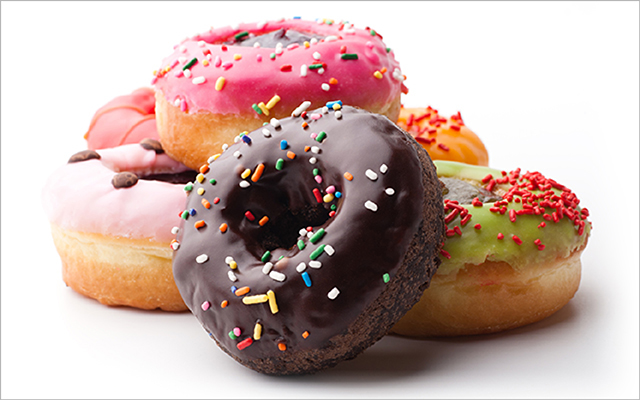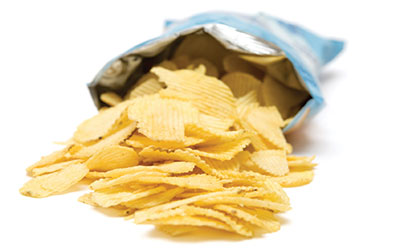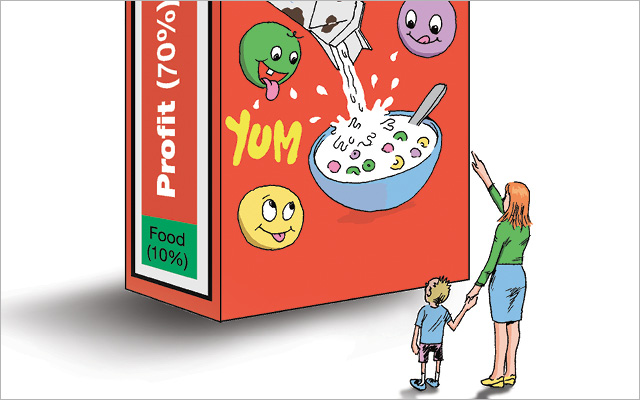Our tax dollars may be making us fat.
A new study from the Centers for Disease Control and Prevention suggests that people whose diets include heavy doses of wheat, corn, soybeans, and other heavily subsidized commodity crops are more likely to suffer from obesity and metabolic diseases than those who avoid these ingredients.
Comparing the typical eating habits of more than 10,308 adults between the ages 18 and 64, CDC researchers found that those who consumed the foods with the most government-subsidized ingredients had a 37 percent greater risk of obesity. They were also significantly more likely to have high blood-cholesterol and blood-sugar levels, and elevated C-reactive protein (CRP), an inflammation marker for biological aging and a variety of chronic conditions.
The study results, published in JAMA Internal Medicine, do not prove that subsidized food causes obesity and other health issues. But the researchers note the correlation in the data and state that this is consistent with other medical research showing that diets high in subsidized foods tend to be more harmful to participants’ health.
More than two-thirds of Americans are overweight or obese, and it comes as no surprise to many experts that junk foods provide our largest calorie sources. According to the U.S. Dietary Guidelines Advisory Committee — a panel of 13 nutrition experts charged with helping develop federal nutrition standards — the top-10 sources of calories are led by grain-based desserts, including cookies, cakes, pies, and doughnuts, followed by soda, energy drinks, pizza, and pasta.
What these foods have in common are their main ingredients: wheat, corn, soybeans, rice, sorghum, dairy, and meat. And these foodstuffs are all heavily subsidized by the U.S. government.
In its 2012 study Apples to Twinkies: Comparing Taxpayer Subsidies for Fresh Produce and Junk Food, the nonprofit consumer advocacy organization United States Public Interest Research Group (U.S. PIRG) put it this way: “The subsidies damage our country’s health and increase the medical costs that will ultimately need to be paid to treat the effects of the obesity epidemic. Taxpayers are paying for the privilege of making our country sick.”
The U.S. PIRG study goes on to state that, “If these agricultural subsidies went directly to taxpayers to allow them to purchase food, each of America’s 141 million taxpayers would be given $7.58 to spend on junk food and 27 cents to spend on apples each year—enough to buy 21 Twinkies but just over half of one Red Delicious apple.”
Between 1995 and 2010, the U.S. government paid out $170 billion in agricultural subsidies to finance the production of these seven major subsidized commodities, according to a July 19, 2016, New York Times report entitled “How the Government Supports Your Junk Food Habit” by Anahad O’Connor.
“While many of these foods are not inherently unhealthy, only a small percentage of them are eaten as is,” the Times notes. “Most are used as feed for livestock, turned into biofuels, or converted to cheap products and additives like corn sweeteners, industrial oils, processed meats, and refined carbohydrates.”
Stocking your kitchen with whole foods can help you avoid many of these products and shift you toward healthier eating habits. For shopping tips and simple recipes, read “The Clean-Eats Pantry” from our May 2008 issue.
Top-10 Sources of Calories in the Standard American Diet
Americans get the most calories from these foods, according to the 2010 Dietary Guidelines Advisory Committee.
- Grain-based desserts, including cakes, cookies, doughnuts, pies, crisps, cobblers, and granola bars
- Yeast-risen breads
- Chicken and chicken-mixed dishes
- Soda, energy drinks, and sports drinks
- Pizza
- Alcoholic beverages
- Pasta and pasta dishes
- Mexican mixed dishes
- Beef and beef-mixed dishes
- Dairy desserts, including ice cream




This Post Has 0 Comments